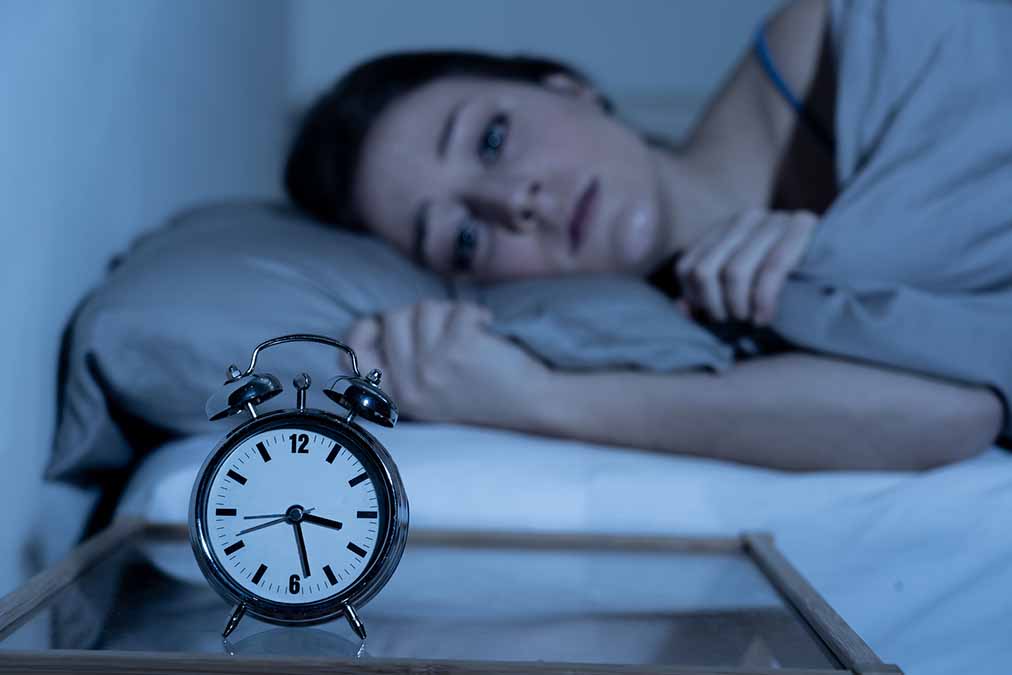 The 10 to 15 years of the menopause are a critical time for women’s health because they are more likely to develop diabetes and substantial sleep disturbances in that period than at any other time in their lives.
The 10 to 15 years of the menopause are a critical time for women’s health because they are more likely to develop diabetes and substantial sleep disturbances in that period than at any other time in their lives.
Both can be ticking health time bombs.
Menopause, the journal of the North American Menopause Society, has just published a study showing that middle-aged women with diabetes are more likely than middle-aged women without it to suffer from poor sleep at night.
This happens because estrogen and progesterone fluctuate wildly during menopause. Both of these hormones are known to affect cell’s responses to insulin, causing fluctuations in blood sugar that put women at greater risk of diabetes.
Good-quality sleep can help to keep diabetes at bay and moderate it if it’s already begun. But the night sweats and hot flashes that come with the menopause are real sleep killers, so they show up at the worst possible time.
Given all these known relationships between menopause, diabetes, and sleep disturbances, the authors of the new study set out to discover whether middle-aged women with diabetes get worse sleep than those without it.
For study subjects, they looked at a subsample of women who’d participated in two large internet surveys. It had collected their background characteristics, their health conditions, their menopause status, and it had also measured their sleep quality and quantity.
They identified 164 subjects, 62 with diabetes and 102 without any metabolic problems.
On average, the diabetic women reported more sleep-related symptoms than their non-diabetic peers did: 9.95 on the index scale versus 7.25.
The diabetic women also had more severe sleep disturbances: 33.42 against 21.87.
In other words, diabetic middle-aged women have more sleep disturbances and more severe sleep disturbances than women without diabetes.
This was true for women of all four of the races that they tested in the United States, but especially so for Asian American women.
A literature review that appeared in the Indian Journal of Endocrinology and Metabolism in 2017 suggests that it’s not only middle-aged female diabetics who have these sleep problems.
According to the literature, it’s common for diabetes to cause nerve damage, along with discomfort or pain. Hypoglycemic and hyperglycemic episodes also happen throughout the night, then there’s restless legs syndrome, the need to urinate, and depression too.
No one is going to get a good night’s sleep with all of that going on, and since diabetics are more likely to be overweight, and since obesity itself causes a lot of sleep disorders like sleep apnea, there’s a lot to deal with there.
There’s also a natural strategy to heal diabetes in less than 28 days too…
And finally, a scientifically-based approach to curing your insomnia…

 Overcoming IBD
Overcoming IBD Multiple Sclerosis
Multiple Sclerosis Banishing Bronchitis
Banishing Bronchitis Gum Disease Gone
Gum Disease Gone Overcoming Onychomycosis
Overcoming Onychomycosis Neuropathy No More
Neuropathy No More The Prostate Protocol
The Prostate Protocol Brain Booster
Brain Booster
 Ironbound
Ironbound
 Solution for Shingles
Solution for Shingles
 The Bone Density Solution
The Bone Density Solution
 The Ultimate Healing Protocol
The Ultimate Healing Protocol
 The Parkinson's Protocol
The Parkinson's Protocol
 The Chronic Kidney Disease Solution
The Chronic Kidney Disease Solution
 Overthrowing Anxiety
Overthrowing Anxiety The Fatty Liver Solution
The Fatty Liver Solution The Hypothyroidism Solution
The Hypothyroidism Solution
 The End of Gout
The End of Gout The Blood Pressure Program
The Blood Pressure Program
 The Oxigized Cholesterol Strategy
The Oxigized Cholesterol Strategy
 Stop Snoring And Sleep Apnea Program
Stop Snoring And Sleep Apnea Program
 The Arthritis Strategy
The Arthritis Strategy The Vertigo & Dizziness Program
The Vertigo & Dizziness Program The 3-Step Diabetes Strategy
The 3-Step Diabetes Strategy Hemorrhoids Healing Protocol
Hemorrhoids Healing Protocol The Erectile Dysfunction Master
The Erectile Dysfunction Master Weight Loss Breeze
Weight Loss Breeze The IBS Program
The IBS Program The Insomnia Program
The Insomnia Program The Migraine and Headache Program
The Migraine and Headache Program The Neck Pain Solution
The Neck Pain Solution The Menopause Solution
The Menopause Solution The Ejaculation Master
The Ejaculation Master The TMJ Solution
The TMJ Solution The Acid Reflux Solution
The Acid Reflux Solution The Fibromyalgia Solution
The Fibromyalgia Solution The Psoriasis Strategy
The Psoriasis Strategy